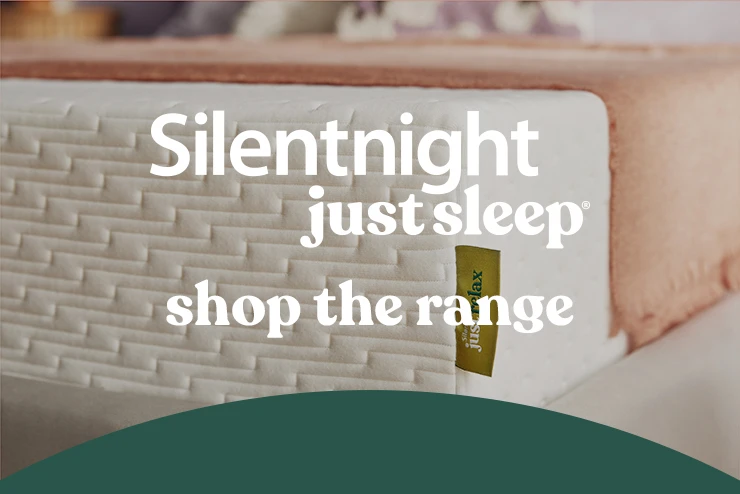Download a new browser







try it out for a year

choose from 7 rolled mattresses

delivered in 48 hours
shop by size
shop by budget
UK's most trusted sleep brand

Handmade in the UK

multi award-winning mattresses
shop by type
buying guides
UK's most trusted sleep brand

multi award-winning mattresses

rigorous safety testing
shop by type
get cosy
UK's most trusted sleep brand

FREE UK delivery over £49

rigorous safety testing







try it out for a year

choose from 7 rolled mattresses

delivered in 48 hours
shop by size
shop by budget
UK's most trusted sleep brand

Handmade in the UK

multi award-winning mattresses
shop by type
buying guides
UK's most trusted sleep brand

multi award-winning mattresses

rigorous safety testing
shop by type
get cosy
UK's most trusted sleep brand

FREE UK delivery over £49

rigorous safety testing
 free delivery over £49
free delivery over £49
 Klarna available
Klarna available
Healthy Sleep
5 min read
written by Shannon W
updated 17.07.2025

International Self-Care Day takes place on July 24th every year and is an opportunity to find out how you can take care of your wellbeing by focusing on practises like eating well, exercising, enjoying the outdoors, being mindful, processing stressful situations positively and adopt healthy sleeping habits.
Getting enough quality sleep each night is also an important self-care practise as poor sleep can affect your concentration levels and overall mood throughout the day.
To make sure you’re getting a quality night’s sleep, you should practise good sleep hygiene, use a sleep journal before bed to process your thoughts, and avoid eating before bedtime.
We live in an increasingly busy world where our focus is constantly being taken away from the things which matter most. International Self-Care Day 2025 is an opportunity to step back and think about you and prioritise your own health, highlighting the importance of mental, physical, and emotional self-care.
For many of us, self-care starts with a quality night’s sleep because a well-needed rest is one of the more beneficial ways you can show your body and mind some love. Join us as we delve into just how important sleep is for your self-care routine as we look at some top tips for improving your wellbeing and celebrating this International Self-Care Day.
Founded in 2011, International Self-Care Day is recognised as a moment to take a step back and reflect on how important self-care is for our wellbeing. Having a day dedicated to self-care is vital for spreading this message across the world.
International Self-Care Day lands on July 24th each year as a day of reflection and self-improvement. It’s also an opportunity to seek inspiration from leading healthcare organisations such as the World Health Organisation and the charity Mind when looking at ways to improve your health and wellbeing through self care.
While we know that sleep is an important focus for International Self-Care Day, there are many other ways that you can be practising self-care. These activities are often part of a wider self-care routine which is perfect for managing anxiety and stress reduction. While it’s important to create your own personalised self-care plan, many people get involved by sharing their self-care tips across social media. These practises often include:
A healthier, more varied diet
Regular physical activity
Spending more time outdoors when possible
Talking with friends and family
Getting a better night’s sleep
We all know it can be hard to prioritise self-care when we all tend to have such demanding lifestyles; however, sleep is the one thing we should be making room for every day. Quality sleep sets the foundation for the rest of your day, and everything you do is impacted by how well you slept in the night.
Sleep plays a huge role in every aspect of our health; it impacts how we feel emotionally, mentally, and physically. So, it’s vital to understand the benefits of healthy sleep and the best self-care practices for a restful sleep.
Whether you’re a night owl or an early bird , adopting healthy sleep habits is a massive part of practising self-care. Here’s some of our experts’ self-care tips to improve sleep quality:
Sleep hygiene is all about turning your bedroom into a healthy environment to get the best night’s sleep possible. Not only does this include ensuring you have a relaxed mindset when getting ready for bed, but the quality of your sleep also has a major impact on your sleep hygiene. Poor sleep hygiene often comes from your sleep environment not being optimised for the best rest possible.
While sleep hygiene is different for every person and age group, it always revolves around prioritising sleep as a vital part of your day and creating a stress-free, relaxed environment for when you drift away.
With that in mind and since International Self-Care Day takes place in July, many people may be starting to feel uncomfortable as they sleep due to the rising temperatures in the evening, especially if you are yet to swap over to a cooler mattress, duvet, or pillow. Making sure you’re optimally comfortable when you get into bed is the best way to start off your sleep self-care journey.
If you wish to find out more about ensuring your sleep hygiene is not negatively impacted during the summer months, check out our [GU3] article of sleep hygiene[GU4] .
By sticking to a consistent sleep routine, it's much easier to have a good night’s sleep and wake up feeling mentally and physically refreshed. This includes setting a consistent bedtime each night, limiting blue light exposure before you hit the hay and making sure you’re getting the right amount of sleep each night. If you’re interested in an effective bedtime routine for better sleep, you can visit our nighttime routine guide to find out how you can sleep better all year round. [GU5]
A sleep journal is an opportunity to jot down all your thoughts and feelings a few hours before you turn the lights out each night. Rather than tracking your sleep habits like a sleep diary, a sleep journal allows you to declutter your mind through writing and is a great way of managing stress before you sleep. A sleep journal allows you to process any worries before you go to sleep, meaning they don’t keep you awake in the night.
The food and drink we consume before bed has inspired recent social media trends such as sleepmaxxing. We’d recommend you take any advice about sleep-enhancing foods with a pinch of salt; however, it has been proven that avoiding eating in the three hours just before your head hits your pillow leads to a better night’s sleep.
While International Self-Care Day is a great chance to look at the different types of self-care practises, July 24th shouldn’t be your only self-care day of the year. To be your best you all year round, you should be focusing on self-care whenever possible by building a sustainable self-care routine which focuses on your goals and lifestyle.
This includes creating a sleep routine with healthy habits so you’re ending your day in a state of relaxation and waking up with more energy than ever. Not to mention, following other self-care recommendations once you’ve woken from your sleep.
To continue discovering more self-care advice related to sleep, check out the rest of our articles about healthy sleep.
Add another item to compare
Add another item to compare
Add another item to compare
Add another item to compare